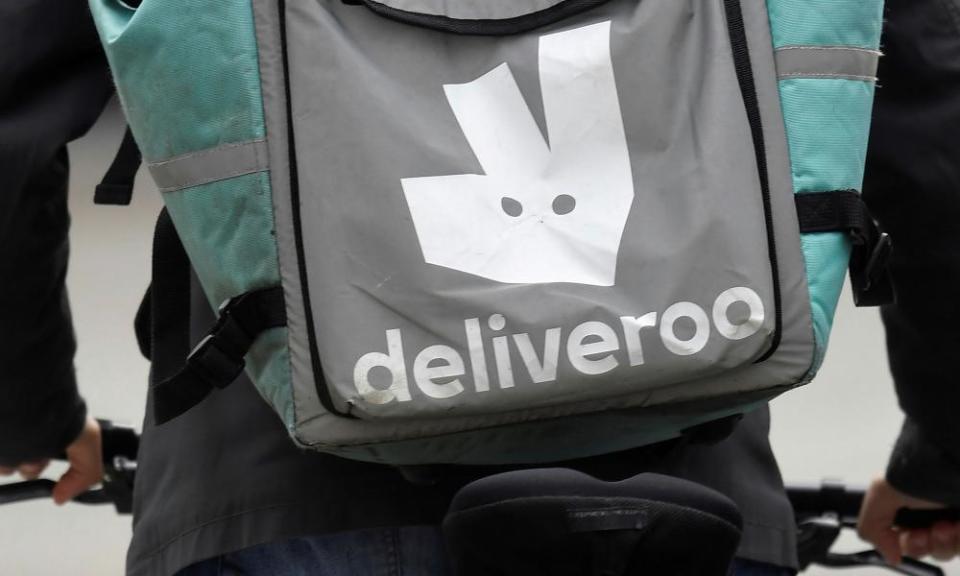Deliveroo's IPO 'flopperoo' is enough to spoil any takeaway

The sole uplifting element in Deliveroo’s £7.6bn flotation won’t feel like such a good idea now. Private investors, who had to be customers, were given the chance to buy shares directly, which is unusual in IPOs these days. About 70,000 were allocated shares and, at an average lot size of £714, they are currently looking at a paper loss of almost £200, enough to spoil any takeaway.
Social media, inevitably, is furious about the “flopperoo”, which may make companies coming to the stock market think twice about inviting small investors to buy. As it is, they can expect their investment bankers to whisper about how retail IPOs are fiddly and how the intentions of hedge funds, love them or loathe them, are easier to read.
Meanwhile, shares in Parsley Box, a business delivering ready meals to over-60s that included customers in its float pitch, also fell on debut this week. A mini-revival in retail IPOs may be snuffed out.
That would be a shame. Away from social media, the quieter majority of Deliveroo’s small punters are probably sufficiently grown-up to understand they were taking an investment risk. It was up to them to decide if the price was severely overcooked.
What should truly annoy them is the lack of equality of access to IPOs in general. Deliveroo is down 28%. Dr Martens, the boot firm that was this year’s earlier high-profile listing, is up 23% – but that offer was an institutions-only affair and the retail brigade only got to trade in the normal way after the initial price pop.
Over at the Financial Conduct Authority, regulators are fretting about whether a gambling mentality has infected retail investors, with novice punters piling into cryptocurrencies or joining the US GameStop silliness. That worry is legitimate, but if the FCA wants to encourage mainstream tastes, it could start by trying to open up the IPO market.
Yes, there are flops (and Aston Martin is still the floppiest of recent vintage), but floats remain an attractive entry point for amateur investors. Equal access remains an excellent cause.
Next’s landlords must be reeling from online shopping surge
“History has been given a shove and, having moved forward, seems unlikely to reverse,” said Simon Wolfson, the chief executive of Next, about the acceleration in online shopping. From the point of view of landlords to Next’s shops, the shove must feel more like a full-on assault.
Here’s what Lord Wolfson’s report revealed about the 80 shop leases that expired last year: 18 stores were closed and the average rent reduction at the other 62 was an astonishing 58%. On slightly more than half the renewed leases, Next negotiated a switch to turnover-linked rents, protecting itself against a steep drop in sales. Even with that insulation, it renewed the leases only for an average of three years.
It was a pandemic year of lockdowns, so tenants’ bargaining power was maximised, but Wolfson predicted more of the same. Another 56 leases will expire this year and Next anticipates average rent cuts of 47% and, once again, three-year terms.
Landlords long ago waved goodbye to their ancient 25-year upwards-only rental agreements, and the erosion in their bargaining power dates to about 2016. But you will still find a few optimistic souls who whistle cheerfully and say rents will stabilise when shoppers can enter shops again. Not on this evidence.
Talk of ‘huge interest’ in Liberty Steel empire fails to ease jitters
It is usually a bad sign when industrialists take time out from talks with their creditors to declare they are “committed” to saving their empire. Negotiating via the media tends not to be a productive tactic.
Nor will Sanjeev Gupta’s round of interviews on Thursday have provided any reassurance to Liberty Steel’s 3,000 employees in the UK. The owner of parent GFG Alliance said he had received “a huge amount of interest” from financiers who might rescue the firm, but didn’t elaborate. Almost the only financial detail he mentioned was that “many billions” of pounds are owed to the collapsed Greensill Capital, but we knew that anyway.
Winding-up petitions have been lodged against some of the UK companies by Citigroup, acting on behalf of Credit Suisse funds owed money by Greensill. If Gupta can persuade the banks to back off, or defend his position that GFG has committed facilities from Greensill for three years, he will be making progress. But a public declaration of love for his UK assets doesn’t move the dial.

 Yahoo Finance
Yahoo Finance 